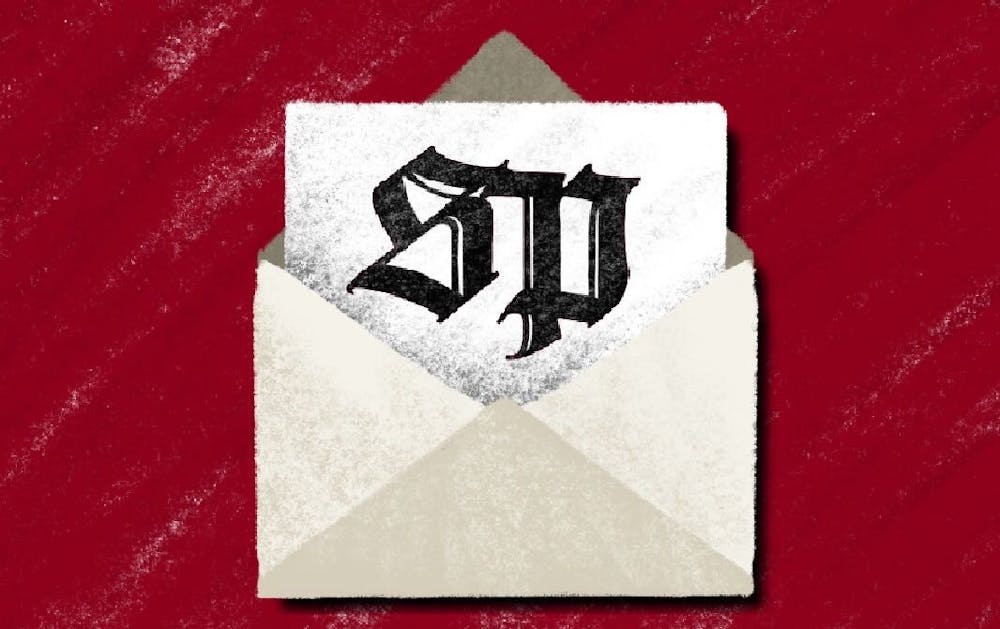I’ve lost faith in the journalism industry.
I can’t say exactly when it happened. Maybe it was my second semester of college when I met my first non-white classmate. Maybe it was earlier this semester when I logged onto a meeting with The State Press’s advisory board and saw only white faces. Maybe it was hearing about laborers’ Spanish voices being translated into English before publication, rendering the article inaccessible to the very people it was about.
Maybe it was when I saw my name at the bottom of a letter that was outside my principles. A letter that ultimately deplatformed a BIPOC voice.
But most likely, it was when I realized that the letter was backed by journalistic ethics, standards and precedents. It was backed by outdated principles and values, the very same ones that control a vast majority of the industry.
Out of 15 of the major news corporations in the country, 12 are headed by white people. A 2019 study by Pew showed that 77% of newsroom employees are non-Hispanic white people. Furthermore, 48% of newsroom employees are non-Hispanic white men.
So the question falls:
Is modern journalism an industry that’s equipped to cover communities that make up less than a quarter of its workforce?
The whiteness of the press dates back to its very roots. The original American newspapers were inaccessible to anyone who couldn’t read, namely non-white people and those who weren’t privileged enough to become literate.
Yet the press is the only non-governmental profession mentioned in the Constitution, a testament to its importance in a democracy, its power to drive change. But if the Constitution was written by white men and for white men, then the press described therein must also be for the benefit of white men. It is often said that good journalism reflects a good democracy. If that’s the case, does white journalism reflect a white democracy?
The Society of Professional Journalists, originally Sigma Delta Chi, has its origins in a fraternity composed of 10 white men at a private university in 1909. In 1926, the fraternity adopted its first code of ethics. Since then, it has been revised a total of four times. The SPJ Code of Ethics is a sort of formula for what is considered to journalistically define right and wrong. We are told by the code to seek truth and report it, minimize harm, act independently and be accountable. At face value, these principles seem fair enough.
But what happens when communities that have been systemically harmed since the very beginnings of this country lash out? Is it journalistically ethical to reduce the harm done to the oppressor?
The subhead of the “act independently” clause reads: “Journalists should be free of any obligation to any interest other than the public’s right to know.” This, in my opinion, is the clause that is the most outdated — or at least the most weaponized by the systemic oppression of BIPOC in the press.
You’ll recall the time Cronkite News reprimanded a student for tweeting that she was born of an immigrant, claiming that it was “not appropriate for a reporter in a news organization,” and that “a news reporter … working for an organization that is trying to fairly cover a variety of issues cannot post a pro-immigration tweet.”
Also consider this summer when Cronkite News discouraged its students from tweeting that Black lives matter in the wake of Derek Chauvin murdering George Floyd.
This perceived notion of objectivity and impartiality on the part of journalists is no longer what best serves BIPOC, low-income people, members of the LGBTQ community, people with disabilities or any marginalized groups.
Journalism is a public service. One of the most important. But if we are meant to operate like cold machines, void of any empathy or sympathy as a large portion of the news sector would have it, we are stripped of any ability to do any sort of justice to the communities we cover.
It’s sickening to watch news outlets write about marginalized communities in such a grossly voyeuristic manner as they do.
Journalism, as it stands now, writes about marginalized communities, not for them. This American journalism industry needs to change, and change soon if it’s expected to do any meaningful work.
We should be operating on terms that will best serve our communities, not terms laid out by Sigma Delta Chi.
— Joseph Perez, Magazine Editor-in-Chief




